
ICAS Bulletin (online ISSN 2836-3418, print ISSN 2836-340X) is published every other week throughout the year at 1919 M St NW, Suite 310, Washington, DC 20036.
The online version of ICAS Bulletin can be found at chinaus-icas.org/bulletins/.
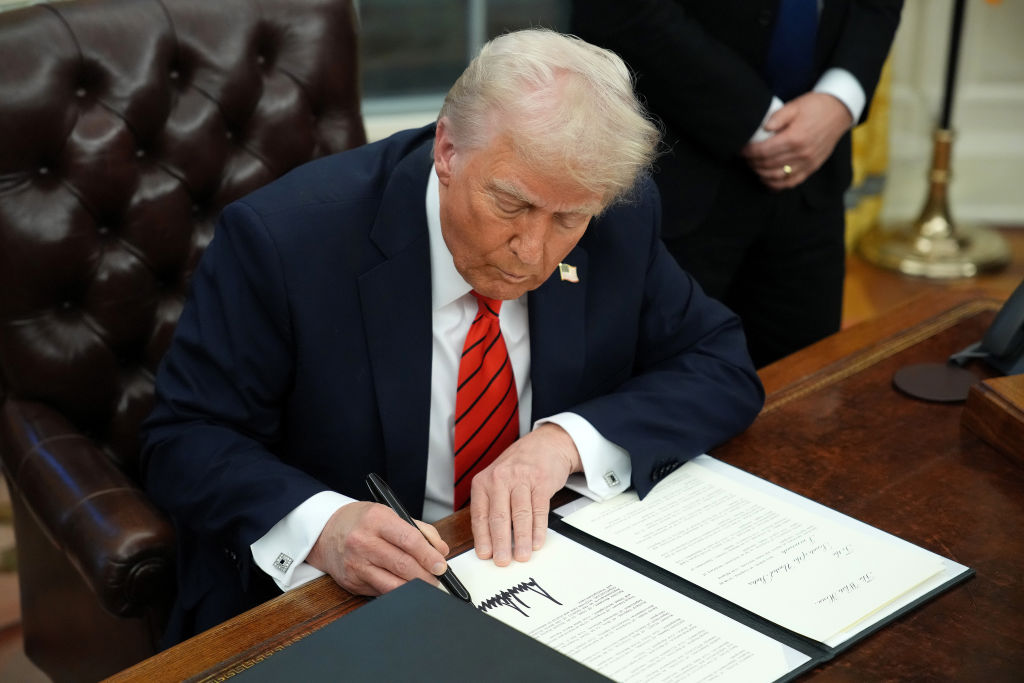
– Trump imposes 25% tariffs on steel and aluminum imports, and the US aluminum premium has surged 25% since February 7, with domestic production unable to meet demand.
– On February 10, China imposed retaliatory tariffs on U.S. energy exports and launched an antitrust probe into Google in response to recent U.S. trade measures.
– On February 10, President Donald Trump imposed 25% tariffs on all steel and aluminum imports, primarily affecting American allies but targeting China, sparking backlash from U.S. producers and international trade partners.
– On February 9, U.S. President Donald Trump suspended tariffs on small packages from China after his order ending duty-free treatment for shipments under $800 caused disruptions, including a temporary halt in package acceptance by the U.S. Postal Service.
– On February 4, President Donald Trump confirmed there was no hurry to speak to Chinese President Xi Jinping to defuse a new trade war between the world’s two largest economies.
Associated News References:
“Trump tariffs lift US metals prices, industry set to struggle,” Reuters, February 11
“Chinese counter-tariffs to kick in as Trump threatens more to come,” NPR, February 10
“China Is at Heart of Trump Tariffs on Steel and Aluminum” The New York Times, February 10
“Trump suspends tariffs on small packages from China,” BBC, February 9
“Trump in no hurry to talk to Xi amid new tariff war,” Reuters, February 5
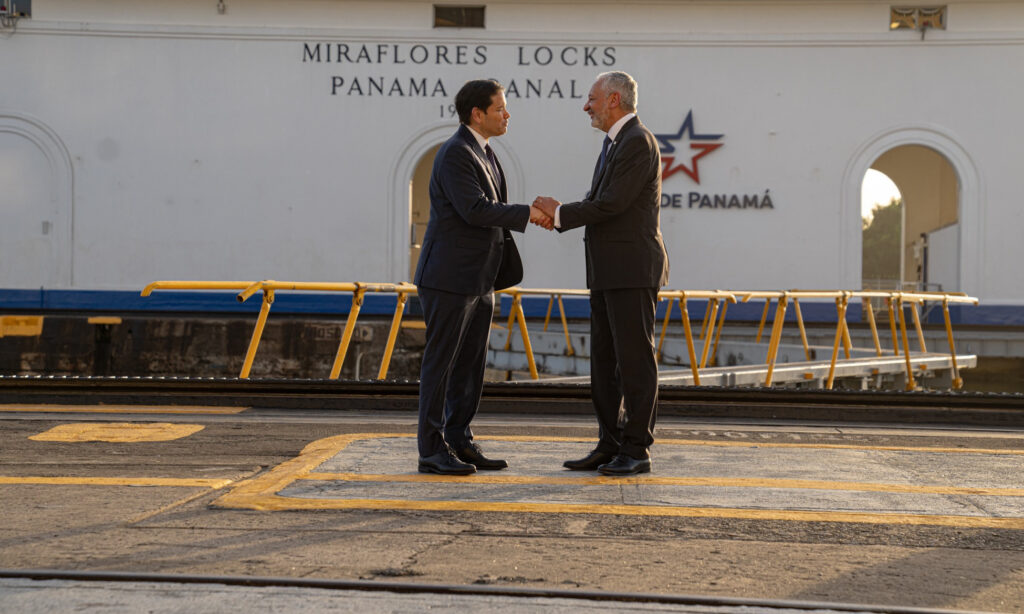
– On February 7, China criticized U.S. “pressure and coercion” after Panama declined to renew its Belt and Road infrastructure agreement following warnings from U.S. Secretary of State Marco Rubio.
– On February 7, Panama officially informed China of its decision to withdraw from the Belt and Road Initiative, a move praised by the U.S. Secretary of State Marco Rubio as a “victory” for U.S. interests.
– On February 3, BBC News reported that U.S. Secretary of State Marco Rubio demanded Panama take “immediate changes” to reduce China’s influence over the Panama Canal, following President Donald Trump’s vow to retake control, while Panamanian President José Raúl Mulino refused to discuss the canal’s ownership.
– On February 2, CNN reported that U.S. President Donald Trump reiterated his vow to “take back” the Panama Canal, warning of “powerful” U.S. action over China’s alleged influence, while Panamanian President José Raúl Mulino announced the non-renewal of its Belt and Road agreement with China.
– On February 2, Voice of America reported that U.S. Secretary of State Marco Rubio warned Panamanian leaders that China’s “unacceptable” influence over the Panama Canal could force U.S. intervention, while Panamanian President José Raúl Mulino rejected any negotiations over canal ownership.
Associated News References:
“China derides U.S. “pressure and coercion” as Panama scraps Belt and Road deal with Beijing amid canal standoff,” CBS News, February 7
“Panama formally exits China’s Belt and Road Initiative as US claims ‘victory’ in decision” South China Morning Post, February 7
“Rubio demands Panama ‘reduce China influence’ over the canal,” BBC, February 3
“Trump reiterates threat to retake Panama Canal ‘or something very powerful’ will happen,” CNN World, February 2
“Rubio to Panama: China exerting ‘unacceptable’ control of the canal,” VOA, February 2
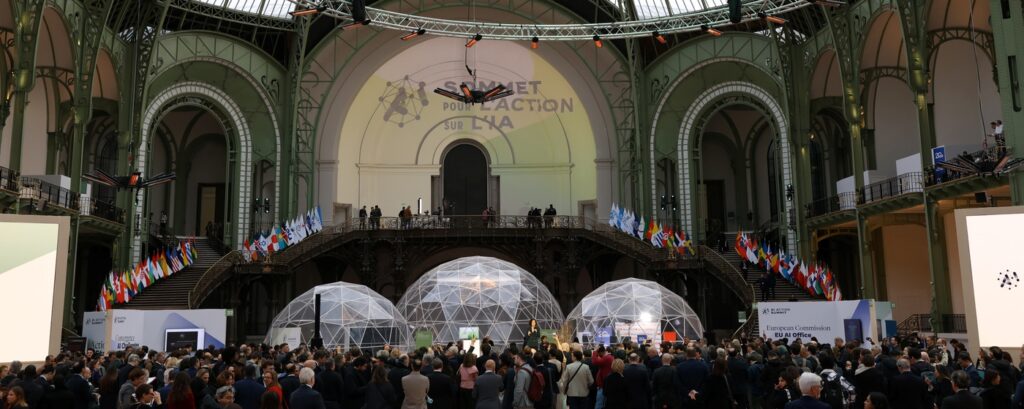
– Apple is partnering with Alibaba to introduce AI features for iPhone users in China after considering multiple firms. It aims to regain market share amid competition from Huawei and declining sales in China.
– On February 11, reports from the Paris AI summit highlighted U.S. Vice President JD Vance’s warning against excessive AI regulation, advocating a hands-off approach. Meanwhile, Europe pledged €50 billion to strengthen its AI ambitions, reflecting a three-way competition in AI governance.
– In a speech at an AI summit in Paris, Chinese Vice Premier Zhang Guoqing emphasized China’s willingness to collaborate on AI security and development, aligning with President Xi Jinping’s vision of “a community with a shared future for mankind.
– China’s largest contract chipmaker, SMIC, saw a 38.4% drop in fourth-quarter of 2024 profit despite a 31.5% revenue increase, as heavy capital investments to expand production capacity and focus on mature-node chips squeezed profitability amid U.S. export restrictions.
– On February 6, NBC News reported that a bipartisan congressional bill was introduced to ban China’s DeepSeek AI software from U.S. government devices due to national security concerns, while some other countries have also restricted its use.
– On January 29, U.S. officials and lawmakers raised national security concerns over the rapid adoption of DeepSeek, following its record-breaking U.S. launch, with the Trump administration directing the National Security Council to investigate potential risks.
– On January 27, BBC News reported that the sudden rise of Chinese AI chatbot DeepSeek, developed at a fraction of the cost of its U.S. rivals, caused Nvidia’s stock to plunge 16.9% and shook global markets, while DeepSeek temporarily restricted registrations due to cyberattacks.
Associated News References:
“Apple Partners With Alibaba to Develop AI Features for iPhone Users in China,” The Information, February 11
“Vance rails against AI regulation in Paris as US faces off with EU, China,” Al Jazeera, February 11
“China is willing to share achievements in AI, vice premier says at Paris summit,” Reuters, February 11
“China’s SMIC Q4 profit slumps 38.4%, misses estimates despite revenue growth,” Reuters, February 11
“U.S. lawmakers move to ban China’s DeepSeek from government devices,” NBC News, February 6
“China Signals It Is Open to a Deal Keeping TikTok in U.S.,” CBS News, January 29
“Nvidia shares sink as Chinese AI app DeepSeek spooks US markets,” BBC, January 27
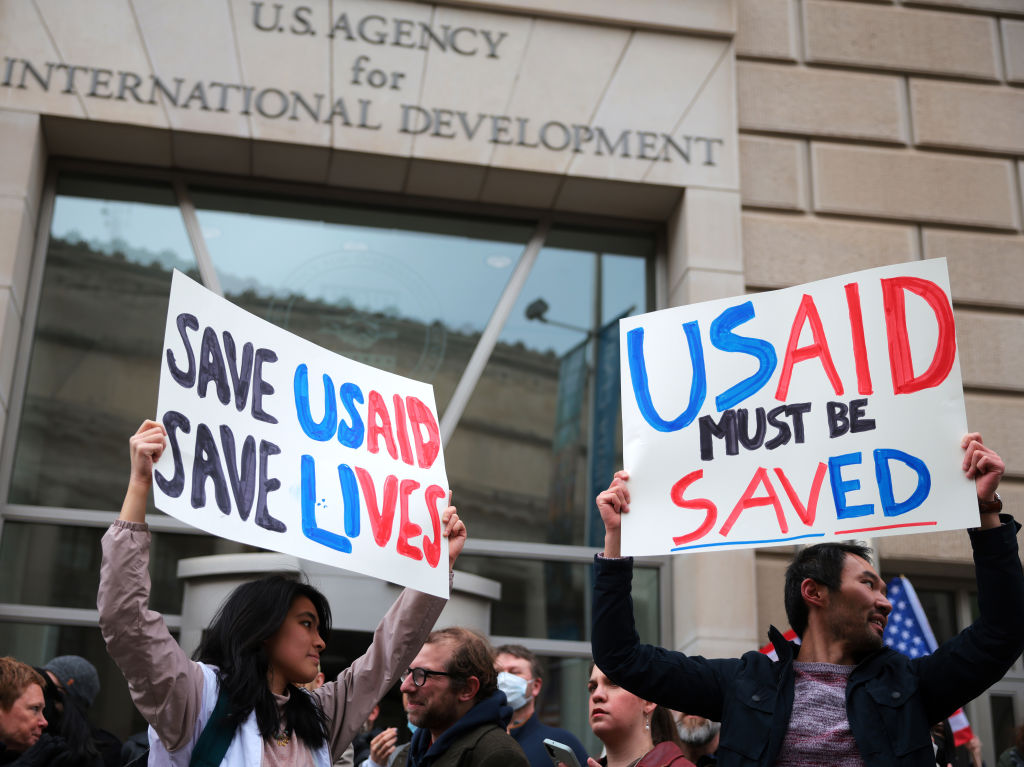
– American China analysts warned that China is moving to fill the void left by the Trump administration’s dismantling of USAID, and this shift could weaken U.S. global competition with China in the long run.
– Fox News reported that China’s growing investments in the Caribbean, including a $3.4 billion port project in the Bahamas, is helping it to expand its influence in America’s “backyard”.
– According to Reuters, as the U.S. scales back international aid under the Trump administration, China has already formed 23 bilateral space partnerships in Africa, supplying satellite technology and infrastructure while securing access to surveillance data, further expanding its regional influence.
– On February 11, Reuters reported that after the Trump administration froze U.S. donations to Cambodia’s largest demining organization, China pledged $4.4 million to the group, as part of its investments in its neighboring countries.
– On February 11, a report highlighted the growing partisan divide over the fate of USAID, with Democrats arguing that scaling back the agency benefits China, while Republicans debate whether it should be restructured or merged with the State Department.
Associated News References:
“As USAID retreats, China pounces,” Politico, February 10
“China expands influence near wealthy florida enclave,” Fox News, February 11
“China builds space alliances in Africa,” Reuters, February 11
“U.S. aid freeze risks handing influence to China in Beijing’s backyard,” Reuters, February 11
“USAID fight underscores fracturing of bipartisan China-hawk stance in Washington,” South China Morning Post, February 11
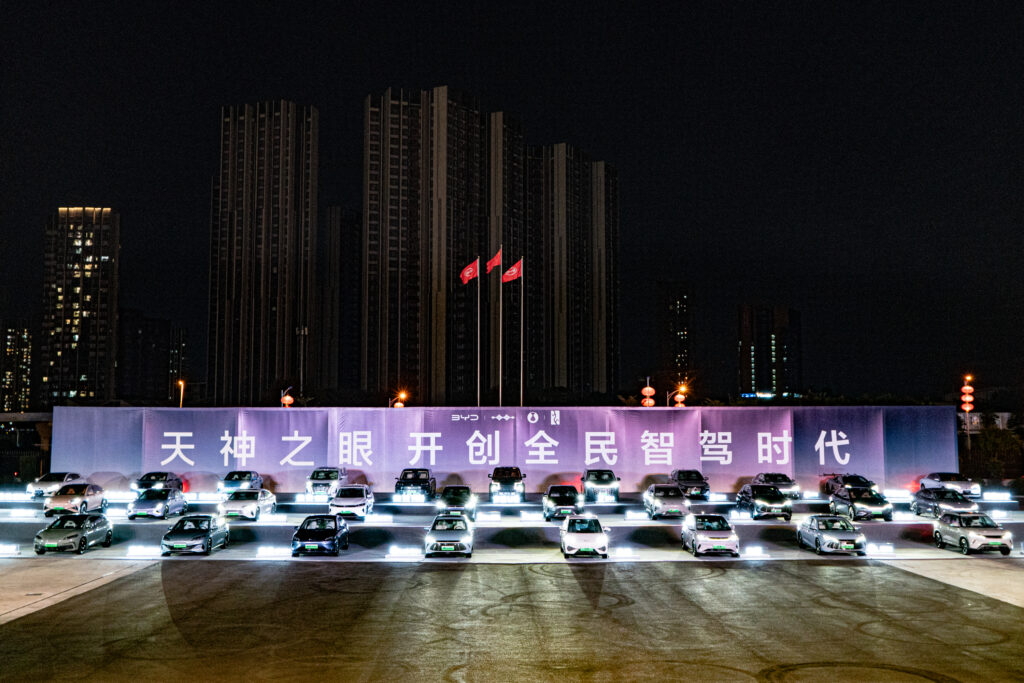
– On February 10, Leapmotor, a Chinese partner of Stellantis, launched a new smart electric vehicle priced under 150,000 yuan, a day after BYD slashed entry prices for similar EVs with autonomous driving features, intensifying competition in China’s EV market.
– On February 11, Tesla opened a $200 million Megapack battery factory in Shanghai. CEO Elon Musk navigated his dual role as Tesla leader and Trump administration adviser, while Beijing welcomed the move as a symbol of economic cooperation amid escalating tariffs and trade disputes.
– On February 11, Chinese EV giant BYD introduced its advanced “God’s Eye” driver-assistance system for free on models costing as little as $9,555, boosting its stock to a record high and intensifying China’s ongoing EV price war, while also announcing plans to integrate DeepSeek AI into its vehicles.
– China’s passenger vehicle sales fell 12% in January, the largest drop in nearly a year. The decline was mostly driven by shifting Lunar New Year timings, frontloaded demand from year-end sales targets, and a consumer rush before a subsidy extension.
– Huawei and SAIC Motor finalized a partnership to launch a new automotive brand, tentatively named Shangjie, targeting younger consumers with vehicles priced between RMB 170,000 and RMB 250,000. The first model is expected in late 2025.
Associated News References:
“China’s Leapmotor launches $20,000 smart EV, after BYD cuts entry price,” Reuters, February 10
“Tesla opens Megapack battery factory in China amid nascent trade war,” The Washington Post, February 11
“A Chinese EV giant is now offering free driver assistance tech on cars under $10,000,” CNN Business, February 11
“China’s car sales post biggest drop in almost a year in January,” Reuters, February 11
“Huawei, SAIC to launch new brand targeting young people, report says,” CNEVPOST, February 11
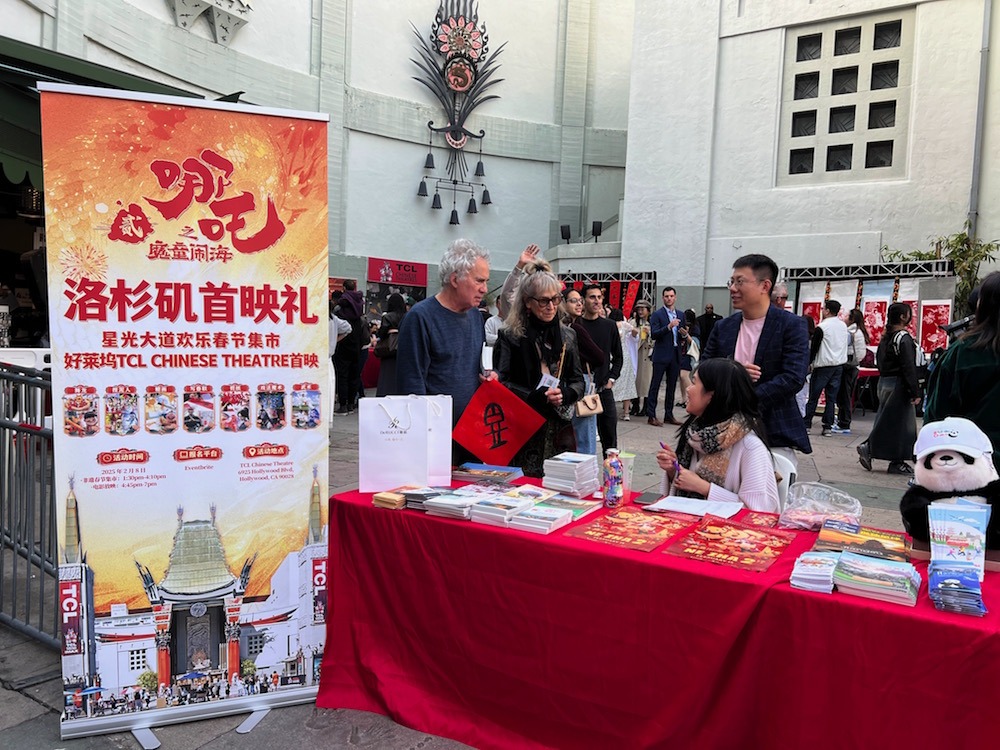
“China’s ‘Ne Zha 2’ Shatters Box Office Records With $1.2 Billion,” The New York Times, February 10
“Trump says he has spoken to China’s Xi since inauguration,” The New York Times, February 11
“China’s wealthy shoppers have a new mentality—and it’s terrible news for luxury brands like LVMH and Kering who bet billions on their loyalty,” Fortune, February 11
“HEDGEFLOW China tops hedge funds’ shopping lists so far this year, Goldman says,” Reuters, February 11
“Chinese spy balloon was equipped with tech from at least 5 US firms: report,” Fox News, February 11
Navigating the South China Sea: Key Developments in 2024 and What to Expect in 2025
By Nong Hong
February 4, 2025
The South China Sea remained one of the most geopolitically sensitive regions in 2024, with maritime disputes, military activities, legal battles and media campaigns continuing to shape regional dynamics. As we move into 2025, a key question arises: will the region witness further confrontations, or will diplomatic avenues emerge to manage these complex issues? While tensions persist, the prospects for peace and cooperation depend on the willingness and ability of regional actors—including China, Southeast Asian nations, and external powers—to balance their competing interests.

Any US bid to retake Panama Canal would be prohibitively costly
By Nong Hong
February 5, 2025
President Donald Trump has recently expressed interest in the US “taking back” control of the Panama Canal, a statement that raises significant legal and geopolitical questions. The US has no legal basis to reclaim the canal without Panama’s consent. Any unilateral move is likely to face strong international opposition and erode US credibility as a treaty-abiding nation.
…
Rather than seeking control, Washington is likely to focus on deepening economic ties with Panama and supporting infrastructure development to ensure regional stability and reduce Chinese leverage.
This commentary was originally released by South China Morning Post on February 5, 2025
Trump’s Impact on Research Cooperation
By Nong Hong
February 7, 2025
The return of Donald Trump to the White House has sparked concerns about the future of U.S.-China research collaboration. A second Trump administration may prioritize shifting geopolitical strategies, national security concerns and the reduction of dependence on China in critical technologies. Such policies would likely influence the scope and dynamics of scientific cooperation between the two nations and affect various high-impact research fields and thus the global scientific landscape.
On Wednesday, February 5, 2025, Senior Fellow Sourabh Gupta examines the global impact of the Trump administration’s tariffs on The Heat: CGTN.
On Tuesday, February 4, 2025, Senior Fellow Sourabh Gupta discussed President Trump’s Tariff Threats on The Hub Program: CGTN
On Tuesday, February 4, 2025, Senior Fellow Sourabh Gupta disputed President Trump’s Opening Tariff Salvos against Mexico, Canada, and China.
On Sunday, February 2, 2025, Senior Fellow Sourabh Gupta analyzed on CGTN America the impending Trump tariffs on Canada, Mexico, and China.
On Thursday, January 30, 2025, Senior Fellow Sourabh Gupta discussed China-Vietnam relations on The Heat: CGTN America.
On Wednesday, January 29, 2025, Distinguished Fellow Denis Simon, Senior Fellow Sourabh Gupta, Research Associate Yilun Zhang were quoted by the South China Morning Post on the impact of DeepSeek and the reflection on the U.S.-China Decoupling.

The Institute for China-America Studies is an independent nonprofit, nonpartisan research organization dedicated to strengthening the understanding of U.S.-China relations through expert analysis and practical policy solutions.
1919 M St. NW Suite 310,
Washington, DC 20036
icas@chinaus-icas.org
(202) 968-0595
© 2025 INSTITUTE FOR CHINA-AMERICA STUDIES. ALL RIGHTS RESERVED.